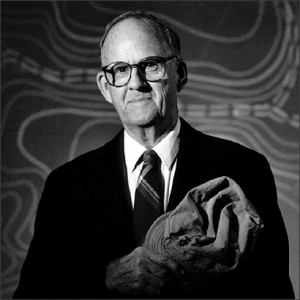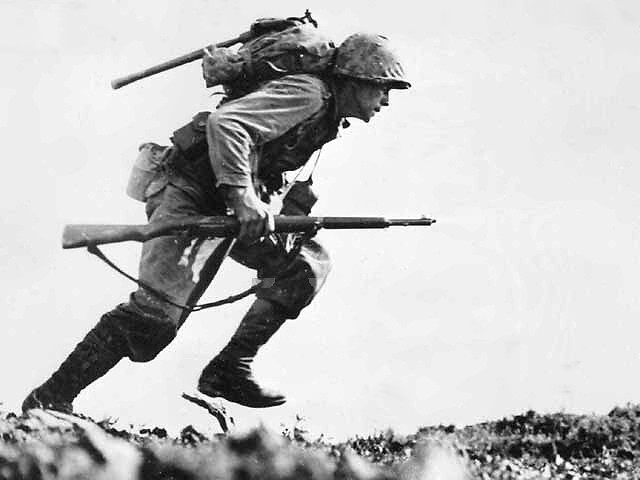
His compassion and love for his fellow Marines, and the circumstances of what happened on those islands, caused an outpouring of raw and vivid emotion. Sledge’s writing and passion is so heartfelt in this book because he allows the sensitivity to the events that surrounded him to be chronicled page by page. He quotes the theme of Wilfred Owen’s poem “Insensibility” by saying, “Those who feel most for others suffer most in war.” And this is what particularly made Sledge a master of the craft of writing, his deep and abiding love for others.
The island fighting against the Japanese in the Pacific was so brutal and horrific that Sledge called it “the most ghastly corner of hell I ever witnessed.” In the fight for Okinawa, some of the bravest of combat veterans cracked, “even to the point of losing their desire to live.” The Marines in the Pacific proved so courageous that Admiral Chester Nimitz simply said of those at Iwo Jima: “Uncommon valor was a common virtue.” Sledge mirrored those thoughts in his own account:
It’s ironic that the record of our company was so outstanding but that so few individuals were decorated for bravery. Uncommon valor was displayed so often it went largely unnoticed. It was expected.
After the war E.B. Sledge went on to become a successful professor teaching microbiology and ornithology at the University of Montevallo in his home state of Alabama. Sledge, who passed away in 2001, published his account in 1981.
He had originally planned for his memoir to be read by family but his wife encouraged him to submit it for publication. Today it is widely considered amongst the most impressive and heartfelt accounts of war. And when it was first published it helped many veterans open up for the first time about their own experience. British military historian John Keegan called With The Old Breed “one of the most arresting documents in war literature.” HBO drew heavily from the book for their miniseries “The Pacific.” The book is also on the official reading list of the Commandant of the U.S. Marine Corps.
The literary contrast of Sledge’s hatred for the Japanese because of their gruesome practices on the battlefield and his own compassion also make With The Old Breed a fascinating read. Sledge, long known as a gentleman from the Deep South, became sickened and disgusted by the horror of war. He writes hauntingly about the profound fear of hitting the beach at Peleliu while reciting the Lord’s Prayer as young men were obliterated around him. He closed his book with these words:
Until the millennium arrives and countries cease trying to enslave others, it will be necessary to accept one’s responsibilities and be willing to make sacrifices for one’s country – as my comrades did. As the troops used to say, ‘If the country is good enough to live in, it’s good enough to fight for.’ With privilege goes responsibility.
With The Old Breed refers to the veterans of Sledge’s 1st Marine Division who had already earned their reputation for fierce and heroic fighting at Guadalcanal before Sledge joined them. As their “Old Breed” nickname indicates, The 1st Marine Division is the oldest, largest, and most decorated division in the United States Marine Corps. Sledge’s book is also a testimony for these men who experienced, overcame, and triumphed over an enemy that waged unspeakable horrors and where surrender was not an option for either side.
On this Veterans Day, it is Sledge’s words from his preface that are most fitting. He says this of the debt of thanks we owe and the enduring link between the American military and liberty:
Now I can write this story, painful though it is to do so. In writing it I’m fulfilling an obligation I have long felt to my comrades in the 1st Marine Division, all of whom suffered so much for our country. None came out unscathed. Many gave their lives, many their health, and some their sanity. All who survived will long remember the horror they would rather forget. But they suffered and they did their duty so a sheltered homeland can enjoy the peace that was purchased at such high cost. We owe those Marines a profound debt of gratitude.

